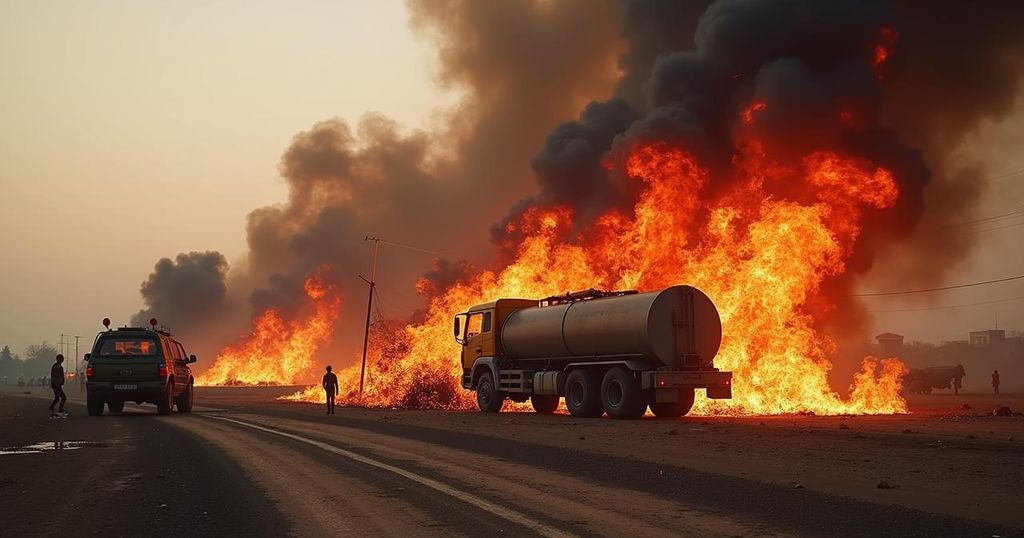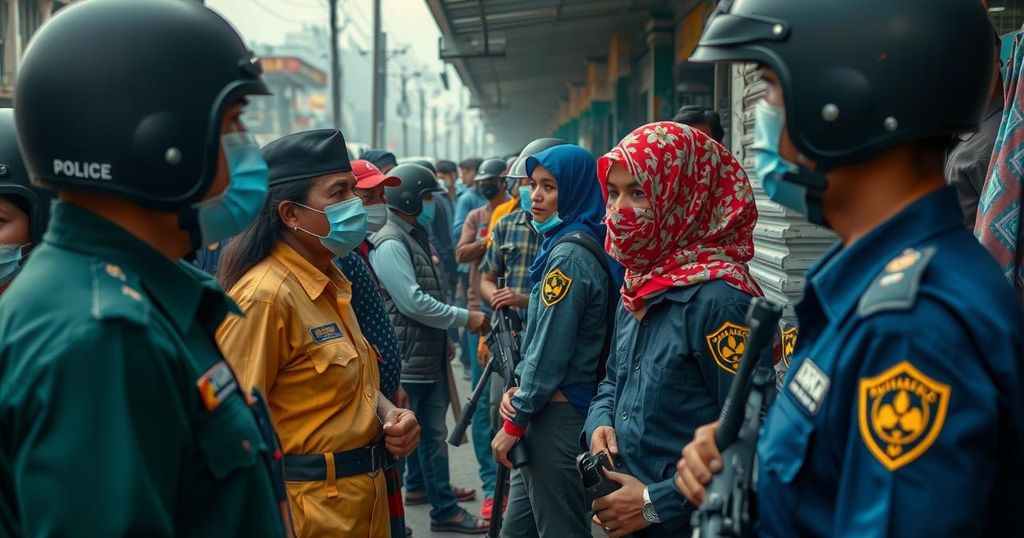Tragic Fuel Tanker Explosion Claims Nearly 100 Lives in Nigeria
A fuel tanker explosion in Jigawa state, Nigeria, has claimed nearly 100 lives and injured around 50 individuals. The incident occurred when a tanker overturned while avoiding a collision, leading residents to gather spilled fuel, which ignited. This tragedy is indicative of the broader issues of road safety and fuel shortages exacerbated by Nigeria’s economic crisis.
A catastrophic fuel tanker explosion occurred in Jigawa state, northern Nigeria, resulting in the deaths of nearly 100 individuals and injuring approximately 50 others, as reported by local authorities. The incident took place when a fuel tanker was attempting to evade a collision with a truck in the town of Majia; however, it overturned, causing a significant spillage of fuel on the roadway. Eyewitness accounts indicate that numerous residents rushed to collect the spilled fuel, leading to a tragedy as flames engulfed the vicinity. Police spokesman Lawan Shiisu Adam confirmed the fatalities and cautioned that the toll could increase as investigations progress.
Fuel tanker explosions are tragically common in Nigeria, primarily due to the nation’s poorly maintained road infrastructure and the desperate measures residents often take to secure fuel during such incidents. Nigeria has been grappling with severe economic challenges, exemplified by the skyrocketing prices of petrol, which have risen fivefold since subsidies were removed last year by President Bola Ahmed Tinubu. This heightened urgency for fuel has intensified dangerous behaviors, such as gathering spilled fuel from accidents, igniting broader concerns over road safety and public health.
In summary, the recent fuel tanker explosion in northern Nigeria not only highlights the ongoing issues surrounding road safety and fuel infrastructure in the country, but it also reflects the growing economic desperation that fuels such tragic incidents. With nearly 100 lives lost, the event underscores the urgent need for improved safety regulations and infrastructure maintenance to prevent future occurrences.
Original Source: www.seychellesnewsagency.com








Post Comment